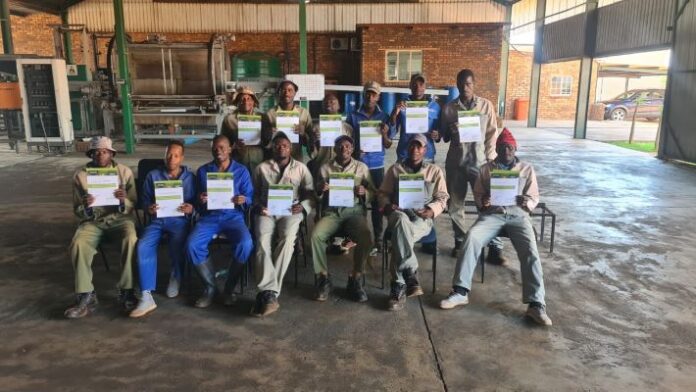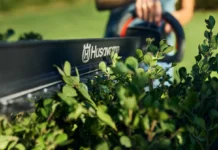Profitability, natural resources, worker safety and the ongoing efficacy of agrochemicals are all at stake when crop-protection products are not applied properly. The spray clinics hosted countrywide by InteliGro and WinField United Wholesale address this problem.
“It is not an exaggeration when we estimate that about 80% of growers fail to apply crop-protection products as accurately and effectively as they should be doing,” says Gerrie Ludick from InteliGro. As a member of the InteliGro team that presents spray clinics, he has first-hand experience of the magnitude of the problem.
Over the past 18 months, 15 row-crop spray clinics had been presented in the Free State and Mpumalanga, and recently the programme was expanded to the Far North with clinics aimed at citrus growers.
The spray clinics deal with two themes, namely the responsible use of agrochemical products and effective application practices. “Both these themes are underpinned by the responsibility we assume for the conservation of the environment and the wellbeing of humans and animals,” says Ludick. “As is the case with everything we do, this stewardship role starts on the farm.”
The part of the proceedings that focuses on the responsible use of products covers topics such as how to correctly read and interpret a product label, why it is important to carefully adhere to safety measures and how to dispose of empty containers.
Water as the carrier of agriculture products is one of the most important topics addressed in terms of application practices. The fact that a citrus grower uses between 2 000 litres and 8 000 litres of water per hectare in the application of crop-protection products, highlights the importance of avoiding mistakes.
According to Duard Bruwer from WinField United Wholesale, the two most common water-related errors are growers not using enough water in their tank mixtures and not ensuring adequate water quality. “Water with a too high salt content or a pH that is either too low or too high can dramatically decrease a crop-protection product’s efficacy,” explains Bruwer. “For this reason, adjustments have to be made before any product or adjuvant is added to the tank.”
Growers should never assume that spray water extracted from different sources is in essence the same. “If you have a few boreholes on your farm and maybe a river and a dam or two, it is inevitable that the water quality of one will differ from the others,” adds Ludick. “Therefore, you cannot simply add water from different sources to the same chemical mix without doing the necessary conditioning.”
When growers neglect to do the necessary preparation, the value of an application is largely lost. Not only is the investment in the product a write-off, but thousands of litres of water are wasted, and the risk of environmental damage is created because the application was not done according to the manufacturer’s instructions. “An incredibly important additional consideration is that ineffective applications encourage the development of resistance,” says Bruwer. “The continued availability and efficacy of quality products are critical. This can only be ensured by protecting the product technology, which depends almost entirely on application practices.”
“It is easier to rectify mistakes in wet seasons; when rain is scarce, results are almost entirely dependent on accurate application,” says Ludick. A rather chilling reality is that bigger and better technology increases the fault factor on a farm exponentially. Until a few years ago, 20 hectares were the maximum area that could be sprayed in a day. Modern-day high-rise sprayers, however, can make short work of 300 hectares. A measurement or water-quality error at the start of the day, can therefore have catastrophic consequences.
Whenever the spray clinic team highlights facts like these, several growers usually confess to never having considered those factors. To a large extent, the value of the spray clinics lies precisely in such tips and nuggets of insider information. It is, however, not only the experts who gets to share their knowledge. The intimate nature of the events – only a handful of growers are invited to attend – allows participants to learn from each other and ask all the questions they want. The networking opportunity alone is invaluable.
“Our objective with the spray clinics is to enable growers to get the best possible return on the astronomical amounts they spend every year on buying and applying agrochemical products,” says Bruwer. “Effective application is the one production factor that is completely within a grower’s control. The good news is that the basic principles are simple – all it takes is to apply them consistently, carefully and to the last letter.”
The InteliGro and WinField United Wholesale spray clinics are one of a kind in South Africa and address the imperative that all resources – human, natural, financial and product – be protected and treated with respect.








